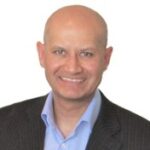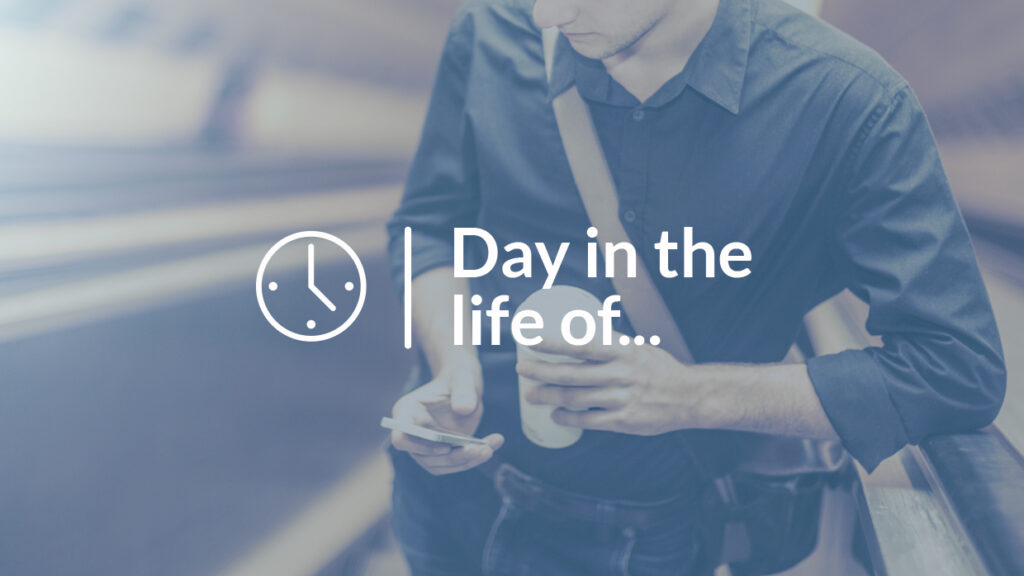We're always curious to hear how our members and contributors tackle the challenges that the ever-changing world of HR throws at them. We've got a wealth of experience and knowledge across the site, and what better way to showcase the diversity of our community than to get them to walk us through an average day?
Want to tell us about your way of working? Email us at editor@hrzone.com, or let us know in the comments below.
Joe Britto is an interactive management consultant and founder of Innate Leaders. He's also a writer and has written several articles for HRZone on topics ranging from team bias and groupthink to diversity.
So, Joe, tell us about your day…
06:30 – I sit down to meditate. I try to have a regular practice but even if it doesn’t always happen I make sure I meditate first thing when I have a day ‘in the room’ – ie. a session with a group.
07:00 – 7:30 – I work across Europe, and North America so I’m often in a hotel room. By 7:30 I’m typically on my way to the venue and running through the program in my head. I find driving helps me focus and get into the zone (as long as I’m not stuck in traffic) which is why I like to leave early.
08:00 – Setting up the room, which often involves moving all the tables that have been arranged in a horseshoe to the side (hotels and conference venues never seem to understand the idea of just chairs in a semi circle) – working with a group is much like theatre and I don’t want the room to look like a traditional classroom type environment. It’s also the time to set up all the tech – sound and video mostly but PowerPoint doesn’t get used much.
I’ll also make sure I’ve got all my props and equipment I might need ready to go, this could be anything from a rope and a ball to poker chips and blind folds – anything that helps me get the group of leaders I’m working with focus on the opportunities and challenges their organisation faces.
I normally work with an organisation over a period of time so the first session sets the tone for the whole work.
09:30 – The session starts. I normally work with an organisation over a period of time so the first session sets the tone for the whole work. As well as liaising with HR and team leads, prior to the program I’ll also have calls with all the participants so I already have a sense of the challenges they face. Beginning with introductions and expectations for the work ahead brings those conversations into the open. It also opens participants to the idea that the program will be dealing with real issues, team dynamics and systemic problems. Crucially it looks forward to how they can make changes.
11:00 – The first break – this is when I look at how things are working so far, and how the overall program needs to change in response to the participants and what’s coming up. My work is responsive – a claim lots of consultants make – but I throw out entire programs based on what’s coming up in the room, all to get to the root of their challenge. At this stage, if the program booker or team lead is also taking part I’ll often have a chat with them to get their take and feedback on how the work is landing.
I throw out entire programs based on what’s coming up in the room, all to get to the root of their challenge.
I’ll also use this time to check emails and check in with office and sales staff. I work in with companies who sell my work so there are often messages from the sales team about setting up client calls for new work.
Back in the room after the break we’ll be moving toward getting a deeper understanding of the drivers behind organisational challenges. Sometimes I play games to highlight these challenges, other times it may be an art project. The point is that over the course of the program we’re slowly moving to adopting a mindset to create new leadership behaviours.
13:00 – We’ll break for lunch and I’ll grab something to eat before taking a client call. I’ll then review the program for the rest of the day and look at how it’s going to affect the work I’ll do in the next sessions with the group. I’ll add in activities that match what the group needs and take out elements that they don’t need to work on.
15:00 – We’re heading into the last stretch of the first day and it’s important to leave the group energized for the work that’s coming next. The key is leaving people on good note, but also challenged enough for the beginnings of a change in mindset – that’s a tough line to walk.
The key is leaving people on good note, but also challenged enough for the beginnings of a change in mindset.
16:30 – We wrap up the first day with a roundtable check in – it gives people the chance to give feedback on what they’ve worked on. The first day can be a shake up for team members who struggle with change so this can be as much about what isn’t voiced as what’s raised.
After we finish for the day I’ll have a debrief with the team lead and discuss our view of the next steps for the work.
18:00 – Back at home the work isn’t finished yet: I’ll begin planning the next day and also look ahead to the arc of the work I’ll be doing with the group. I’ll also make sure I’ve got all the equipment I might need ready to go for the morning.
19:00 – Before I finish for the night it’s time for a call with the CEO about any change projects that may be needed. We’ll talk about how s/he wants the team to lead on these projects and I’ll offer views on how we can help the team develop a leadership mindset through the vehicle of the projects. It’s a way for the leaders to use their creativity and initiative to get the job done in the best way possible.
20:00 – After I’ve got all the work done it’s time to decompress so I’ll often go for a walk – my favourite time to walk is at night in the rain and since I live in Vancouver (a former rainforest) it’s pretty abundant here. Sometimes I even persuade my partner to brave the elements and join me on a rainy night-time walk by the water!
After that I’ll probably relax for a while with some TV. Superheroes are my thing, they’re the ancient gods of modern culture – serving the same needs for us as an array of gods served for ancient cultures. Also it’s just really fun. Vancouver is known as Hollywood North because of all the TV and films that are shot there, so it’s fun trying to spot local landmarks in TV shows!
Now, tell us…
What would you say are your main passions or things you champion within HR?
Leadership is my speciality and my passion. Leadership isn’t just a role; it’s a mindset with a specific set of behaviours that isn’t limited to how we run our businesses and organisations. Helping leaders develop that mindset matters to me because it doesn’t just make a business more profitable, it changes how we think of business and how we choose to live.
What part of your job do you enjoy the most?
Working with people who want to be the best they can and recognise there is no finishing line.
What keeps you up at night?
There’s a scary lurch toward the hard right in the world these days… The rise of Trump, Duterte in the Philippines, and even Brexit are to me symptoms of a lack of real and meaningful leadership and a cry for leadership that works.
One tip you’d pass on to your peers?
The world of consultancy and training is filled with what’s often referred to as the “bullsh*t phenomenon” – recycling old ideas while adding nothing to them; working off dubious or meaningless models; offering ideas we only have a superficial understanding of. The consulting and training industry has a lot of to offer and can be pivotal in shifting the business world. So my tip? Take it seriously, be the message you’re offering, keep up to date with what works in business and make sure you’re adding real and meaningful value.







